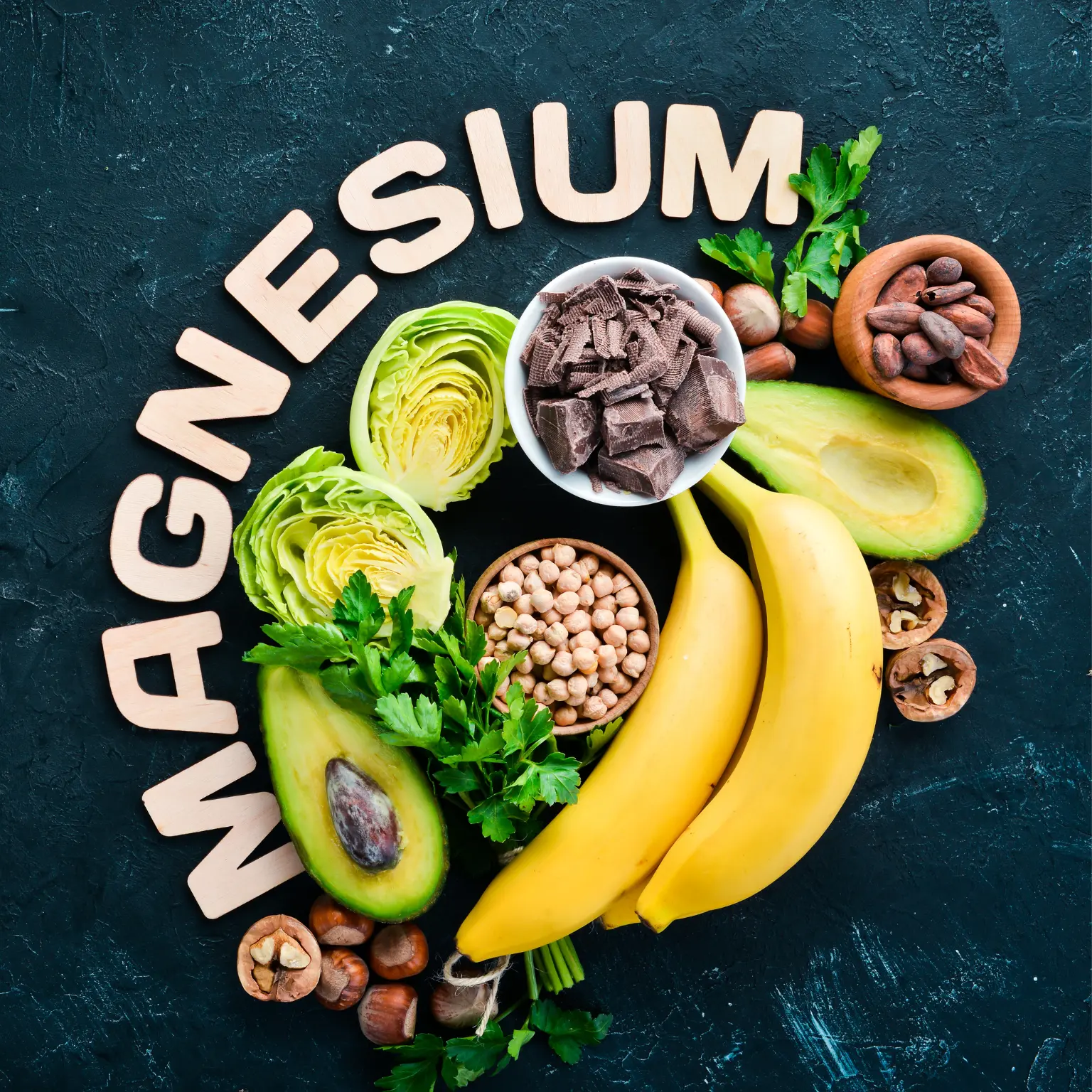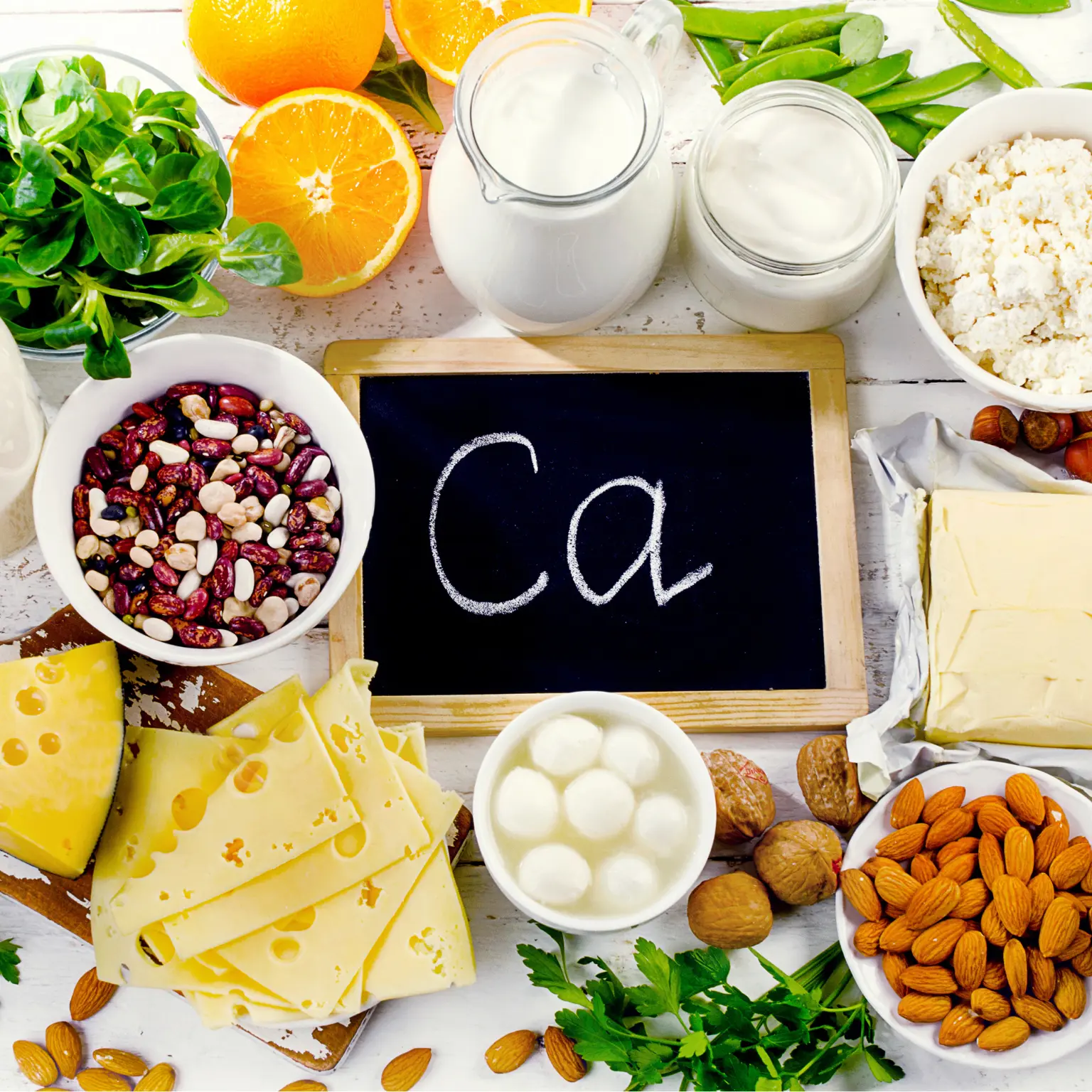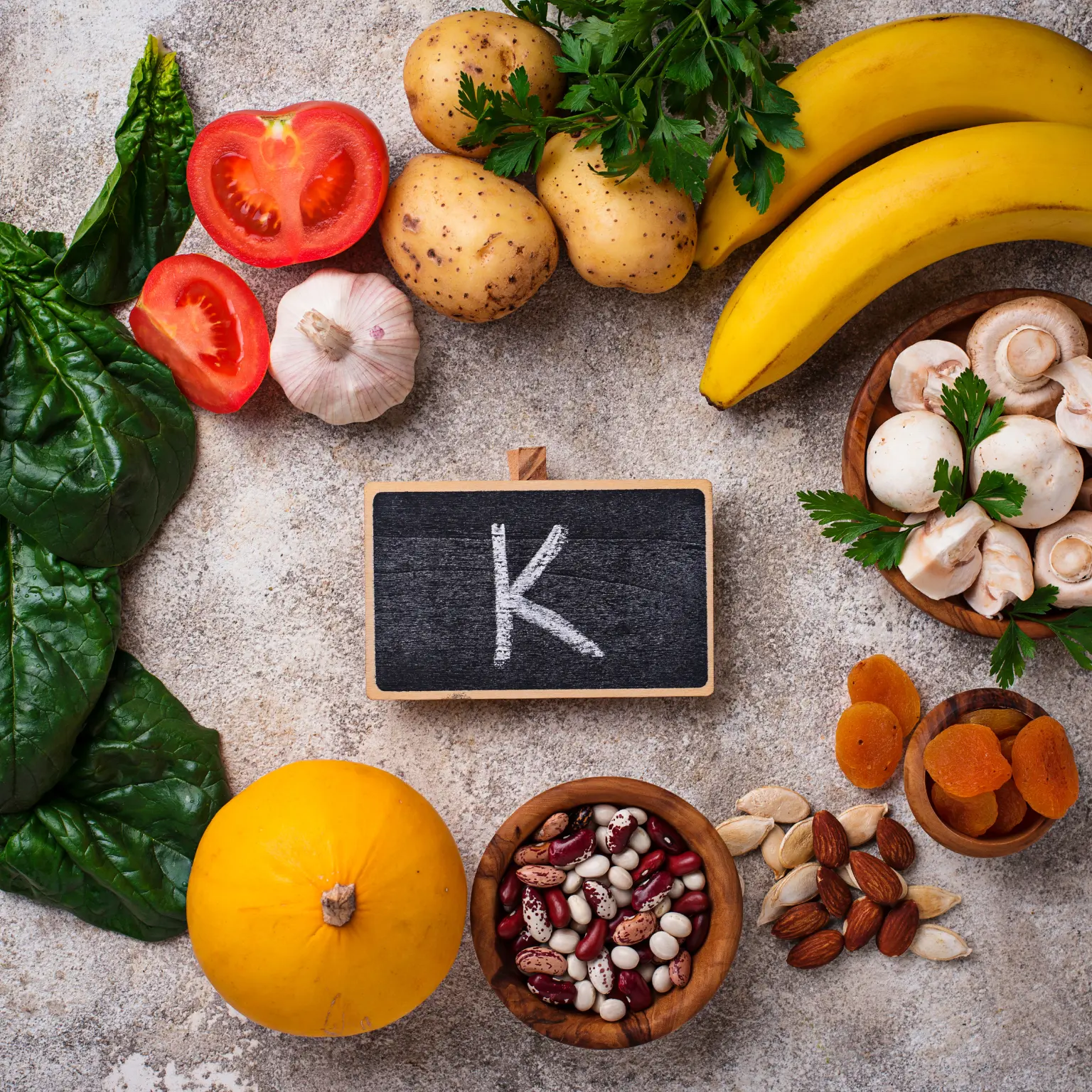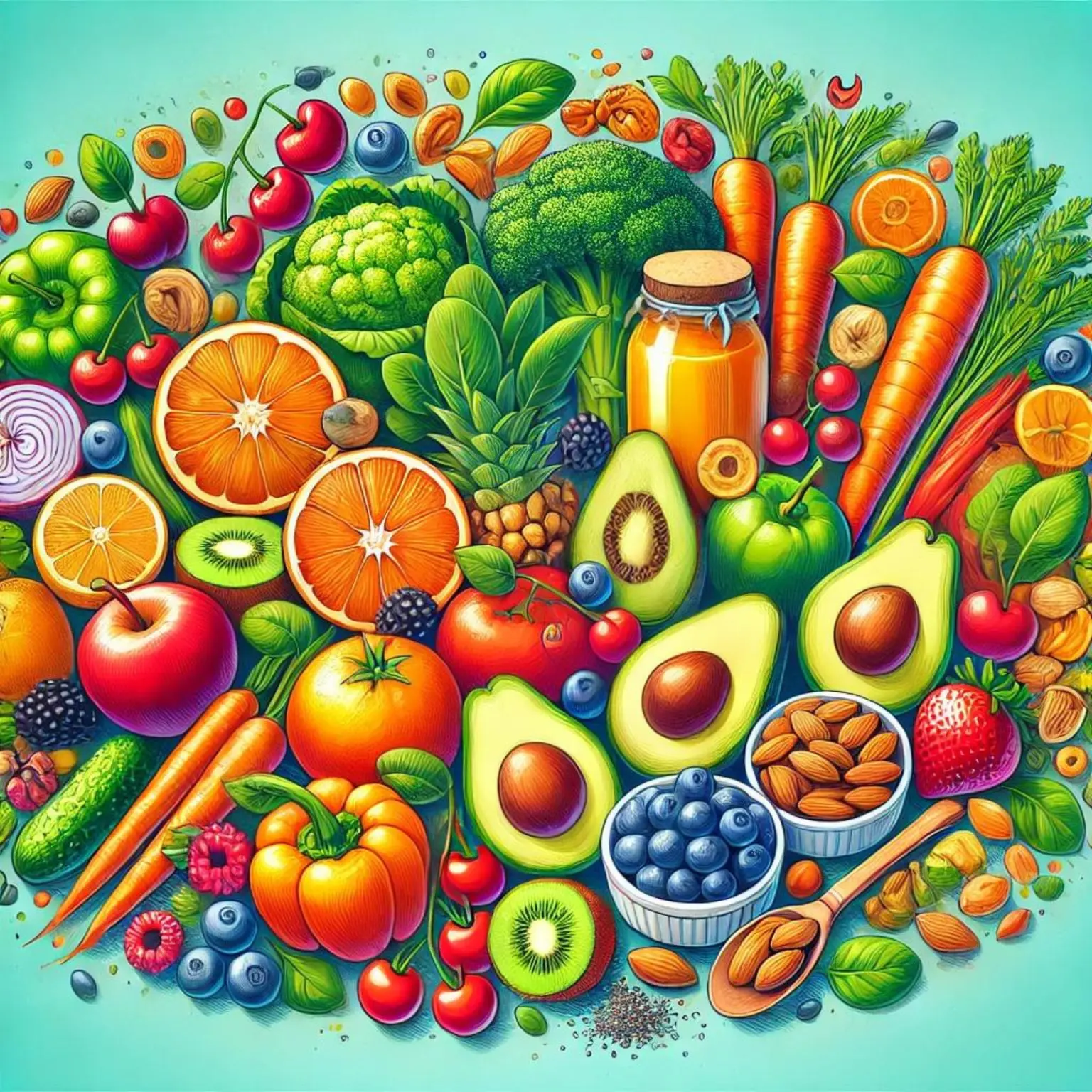What Are 12 Incredible Fibre-Rich Foods for Health?
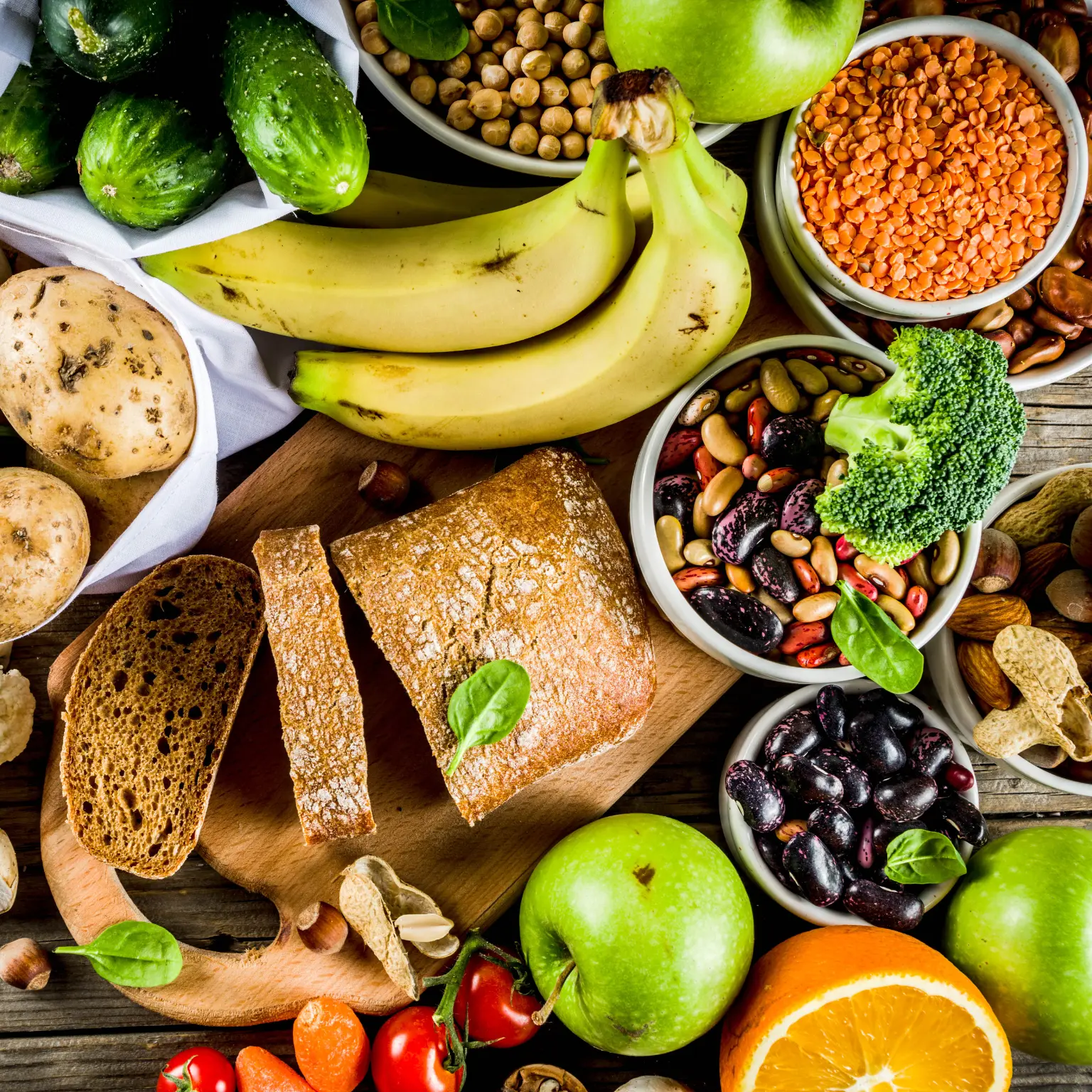
Welcome to Healthy Stride Wellness! Today, we’re thrilled to share our guide on fibre-rich foods and how they contribute to overall health. Fibre is essential to a balanced diet that supports digestion, weight management, and heart health.
Yet, many of us may not know how easy it is to incorporate high-fibre foods into our daily meals. In this blog, we’ll introduce 12 incredible fibre-rich foods for health that are easy to include in your diet.
By the end of this post, you’ll understand the benefits of adding these nutrient-packed foods to your routine and how they can help you maintain a healthier lifestyle.
Table of Contents
Key Takeaways
- Fibre-rich foods support digestion, heart health, and weight management.
- A mix of soluble and insoluble fibre is essential for complete gut health.
- Simple food swaps can help you meet daily fibre requirements for long-term wellness.
Why Fibre is Essential for Health?
Fibre is a vital nutrient found mainly in plant-based foods. It’s classified into two main types—soluble and insoluble—and both types play unique roles in the body. Soluble fibre dissolves in water and helps regulate blood sugar levels and lower cholesterol, while insoluble fibre adds bulk to your stool, making it easier to pass through the digestive system.
Adding fibre-rich foods for weight management and digestive health helps support daily bodily functions. From improving gut health to aiding in weight loss, fibre works wonders for your body. Additionally, it helps reduce the risk of heart disease, diabetes, and other chronic conditions.
But the question remains: which foods are the best fibre-rich foods for digestion and overall health? Let’s dive in.
Oats: The Breakfast Superstar
Oats are often regarded as one of the best breakfast foods, and it’s easy to see why. They’re rich in soluble fibre—specifically beta-glucan, which helps reduce LDL (bad) cholesterol levels.
A warm bowl of oatmeal in the morning is a simple way to incorporate high-fibre foods for a healthy diet. Oats are also a great source of slow-release carbohydrates, keeping you fuller for longer and making them ideal for weight management.
Benefits of Eating Oats:
- Helps lower cholesterol
- Improves digestion
- Encourages a sense of being full, which helps with losing weight.
Lentils: The Protein and Fibre Powerhouse
Lentils are an amazing plant-based protein that offers a generous amount of fibre. One cup of cooked lentils contains about 16 grams of fibre, making them a perfect option for both vegetarians and meat-eaters looking to boost their fibre intake.
Lentils are particularly high in soluble fibre, which aids in controlling blood sugar levels and improving gut health.
How Lentils Benefit You:
- High in both fibre and protein
- Promotes heart health by lowering cholesterol
- Keeps blood sugar stable
Apples: A Simple, Crunchy Fibre Source
An apple a day does more than just keep the doctor away—it provides a great source of soluble fibre, especially when eaten with the skin. Apples are packed with pectin, a type of fibre that promotes gut health and can help lower cholesterol.
As one of the top fibre foods for heart health, apples are easy to incorporate into your diet as a snack or part of a meal.
Why Eat Apples:
- Rich in both soluble and insoluble fibre
- Helps maintain healthy digestion
- Supports weight management due to low calorie and high fibre content
Chia Seeds: Tiny Seeds with Big Benefits
Chia seeds are small but pack a big punch when it comes to fibre content. Just two tablespoons of chia seeds provide 10 grams of fibre, making them a must-add to your diet.
The majority of the fibre in chia seeds is soluble fibre, which helps form a gel-like substance in the stomach, promoting fullness and aiding in digestion.
Benefits of Adding Chia Seeds:
- Supports weight management by keeping you full longer
- Helps regulate blood sugar levels
- Enhances digestion and gut health
Barley: A Versatile Whole Grain
Barley is a fibre-rich whole grain that offers various health benefits, particularly for those looking to improve heart health. Its high content of soluble fibre can help lower cholesterol and promote healthy blood sugar levels.
Whether added to soups, salads, or used as a base for meals, barley is one of the best fibre-rich foods for a balanced diet.
Why Barley is Great for You:
- Lowers cholesterol
- Supports digestion and heart health
- Provides sustained energy for weight control
Avocados: A Superfood Full of Fibre
While avocados are best known for their healthy fats, they’re also a rich source of fibre. A single avocado contains around 10 grams of fibre, with a good mix of both soluble and insoluble fibres.
Adding avocados to your meals not only enhances the taste but also supports digestive health and keeps you satisfied.
Avocado’s Health Benefits:
- High in both soluble and insoluble fibres
- Helps maintain a healthy gut
- Aids in weight management and heart health
Broccoli: A Nutrient-Dense Veggie
Broccoli is not just packed with vitamins—it’s also a great source of fibre. Rich in both types of fibre, broccoli helps regulate bowel movements and can prevent constipation.
Including broccoli in your diet is a simple way to boost your daily fibre intake while also getting a good dose of antioxidants, vitamins, and minerals.
Why Broccoli is a Fibre Powerhouse:
- Improves gut health
- Helps reduce cholesterol levels
- Supports a healthy digestive system
Almonds: A High-Fibre Snack Option
Almonds are not only an excellent source of healthy fats but also offer a good amount of fibre. Just a handful of almonds (about 23 nuts) provides 3.5 grams of fibre, making them an ideal snack to curb hunger and promote fullness.
They’re one of the high-fibre snacks for healthy eating that’s easy to carry with you.
Health Benefits of Almonds:
- Supports weight loss by increasing fullness
- Promotes heart health by lowering cholesterol
- Improves digestion
Whole Grain Bread: A Staple for Fibre
Switching from white to whole-grain bread is an easy way to increase your daily fibre intake. Whole grains contain the entire grain, meaning they provide more fibre than refined grains, which have been stripped of their nutrient-rich bran.
This simple change can have a significant impact on your digestion and heart health.
Why Whole Grain Bread Matters:
- Improves bowel movements
- Promotes heart health and reduces cholesterol
- Provides a good source of insoluble fibre for a healthy gut
Raspberries: Fibre-Rich and Delicious
Raspberries are not just tasty; they’re also a high-fibre fruit. With 8 grams of fibre per cup, raspberries make a great addition to smoothies, yogurts, or cereals.
They’re rich in antioxidants and low in calories, making them perfect for weight management and overall health.
Why You Should Eat More Raspberries:
- High in soluble fibre to help control blood sugar
- Promotes healthy digestion
- Supports weight loss efforts with low calorie content
Sweet Potatoes: A Comfort Food Rich in Fibre
Sweet potatoes are a delicious, fibre-filled alternative to regular potatoes. They’re loaded with both types of fibre and are especially rich in insoluble fibre, which helps keep the digestive system functioning properly.
Baked or mashed, sweet potatoes offer a wide range of health benefits and are a versatile addition to any meal.
Health Benefits of Sweet Potatoes:
- Supports digestive health
- Helps regulate blood sugar levels
- Promotes heart health with soluble fibre
Black Beans: A Fibre and Protein Combo
Black beans are a great way to get protein and fiber from plants. One cup of black beans provides about 15 grams of fibre, making them ideal for promoting heart health and stable blood sugar levels.
They’re also rich in antioxidants and perfect for adding to soups, salads, or burritos.
Benefits of Black Beans:
- Helps lower cholesterol and maintain heart health
- Aids in weight management by promoting fullness
- Improves digestion with high fibre content
What Happens When You Eat Too Much Fibre?
While fibre-rich foods are beneficial for health, consuming too much fibre too quickly can lead to bloating, gas, and stomach discomfort.
It’s important to gradually increase your fibre intake and drink plenty of water to help the fibre move through your digestive system smoothly.
How Much Fibre Should You Eat Daily?
According to health experts, women should aim to consume about 25 grams of fibre per day, while men should target 38 grams.
Incorporating the foods mentioned above into your daily meals makes it easy to meet these goals and reap the full benefits of a high-fibre diet for digestive health.
Soluble vs. Insoluble Fibre: What’s the Difference?
- Both soluble and insoluble fibre is essential for maintaining a healthy diet, but they serve different purposes.
- Soluble fibre dissolves in water and helps reduce cholesterol levels and control blood sugar.
- Insoluble fibre, on the other hand, adds bulk to your stool and promotes regular bowel movements.
- To support your overall health, aim to include foods that provide both types of fibre in your diet.
Conclusion
Thank you for joining us on this journey to explore 12 incredible fibre-rich foods for health, brought to you by Healthy Stride Wellness! These foods not only support your digestive system but also aid in weight management and heart health.
By adding these high-fibre foods to your diet, you can enjoy better digestion, increased fullness, and long-term wellness.
For more insights on fibre-rich foods and maintaining a healthy lifestyle, visit Healthy Stride Wellness. Explore our nutrient and diet category to check other blogs for more valuable information!
FAQs
What foods are highest in fibre?
Foods like lentils, black beans, raspberries, and chia seeds are among the highest in fibre.
What happens when you eat too much fibre?
Eating too much fibre can cause bloating, gas, and stomach discomfort. It’s a good idea to slowly increase how much you eat.
What fibre-rich foods help with weight loss?
Apples, almonds, oats, and avocados are excellent for weight loss due to their high fibre content, which helps you feel full longer.
Please Note: Healthy Stride Wellness provides educational content and is not a replacement for medical advice. Consult a healthcare provider for any health issues.

